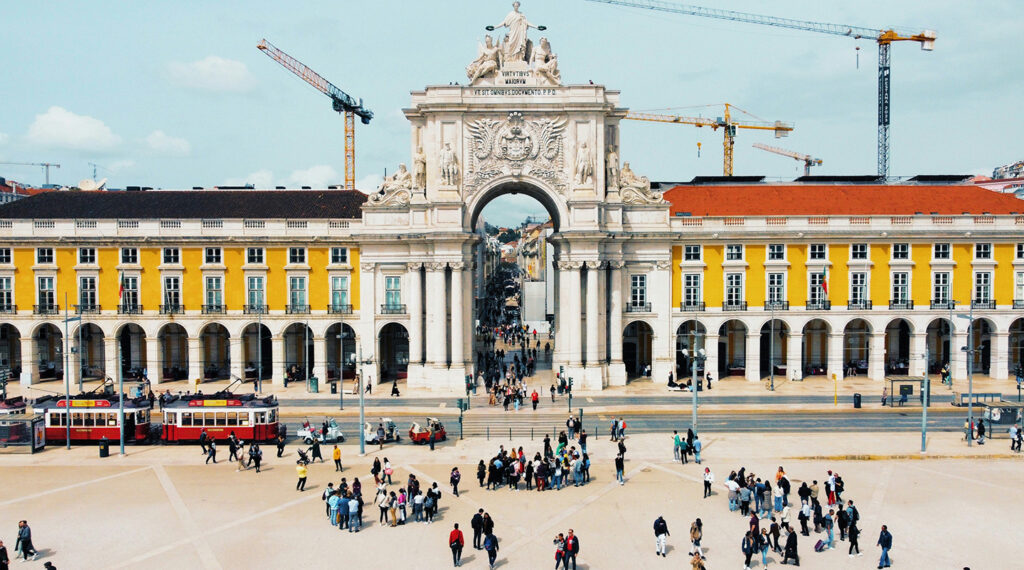The Portuguese Golden Visa for culture and the role of foundations

Portugal’s Golden Visa programme has long been a gateway for non-EU investors to gain residency through strategic financial contributions. Over time, this programme has cultivated a distinct “Golden Visa culture,” where investment migration is not just about residency but also about economic and social influence. Within this landscape, foundations play a crucial role in shaping how philanthropic contributions fit into this evolving culture.
Recent changes and their impact
In response to concerns over housing affordability and speculative investment, the Portuguese government recently restructured the Golden Visa programme. Real estate acquisitions no longer qualify, and instead, applicants must invest in areas such as scientific research, venture capital, or cultural and philanthropic initiatives. This shift has influenced the “Golden Visa culture,” moving it away from property-driven incentives and towards investments that align with social good, including funding for foundations.
Foundations and the Golden Visa culture
One of the most notable aspects of the Golden Visa reform is the inclusion of non-profit and philanthropic contributions as a valid investment pathway. Investors can now support public-benefit foundations engaged in cultural heritage or production. This has redefined the Golden Visa culture, positioning philanthropy as a strategic and legitimate route to residency. Foundations, in turn, must navigate this shift to ensure they are not merely passive beneficiaries but active partners in fostering genuine cultural impact.
Minimum investment thresholds and eligible projects
For philanthropic investments to qualify under the Golden Visa programme, the following financial thresholds and project types apply:
- Minimum donation requirement: €250,000 for cultural and philanthropic investment (reduced to €200,000 if in a low-density area)
- Cultural investment: Contributions must support the preservation of cultural heritage, artistic initiatives, or restoration projects
Foundations working in these areas have the opportunity to attract investment while ensuring alignment with their missions and long-term sustainability.
Benchmarking other Golden Visa programmes
Although Portugal currently offers one of the most accessible and affordable golden visa options focused on cultural and philanthropic investment, especially appealing to those interested in supporting the arts and heritage preservation, it is not the only country to integrate philanthropy into its residency-by-investment scheme. Here’s how it compares to other Golden Visa programmes:
- Italy: Provides a residency visa for those who donate at least €1 million to a philanthropic initiative
- Malta: Allows residency through a €750,000 non-refundable contribution to the national development fund, with an additional €10,000 donation to an approved NGO
- Ireland: €500,000 non-refundable donation to public projects benefiting arts, sports, health, culture, or education
- Hungary: investors can donate €250,000 to an institution of higher learning.
Portugal’s model is unique in its accessibility for mid-level philanthropic investors and its culture oriented model, while still offering a structured residency pathway.
Available data
Since it was created, more than €22 million euros have been directed to nearly 40 foundations in two areas: restoration or maintenance of national cultural heritage and artistic production programmes.
Opportunities for the philanthropic sector
The revised Golden Visa framework encourages foreign investors to engage with Portuguese foundations in a more structured and strategic way. This creates several opportunities:
- Increased funding: Foundations working in areas aligned with eligible investment categories see an influx of financial support
- Shaping the Golden Visa narrative: Foundations have the opportunity to influence how Golden Visa contributions are perceived, ensuring they are associated with meaningful, long-term impact rather than transactional donations
Challenges and ethical considerations
While the potential benefits are significant, several challenges and ethical concerns must be addressed:
- Avoiding a philanthropy-as-a-loophole mentality: There is a risk that some investors may see philanthropic contributions merely as a means to an end. Foundations must ensure that funds are directed towards sustainable and impactful initiatives.
- Regulatory and administrative barriers: The process of channelling Golden Visa investments into non-profits requires clear regulatory frameworks to ensure transparency and accountability.
- Long-term engagement: Foundations should explore ways to transform one-time contributions into ongoing relationships with investors, ensuring continued support beyond the residency application process.
Conclusion and future outlook
The inclusion of philanthropic investments in the Golden Visa programme presents an unprecedented opportunity for Portuguese foundations.
By strategically engaging with international investors, the sector can secure new funding sources while reinforcing its social mission. However, for this model to be sustainable and ethical, it requires careful oversight, clear regulations, and a commitment to fostering long-term philanthropic engagement.
If successfully implemented, Portugal’s approach could serve as a model for other countries seeking to integrate philanthropy into residency-by-investment programmes.
More importantly, foundations have the power to influence the Golden Visa culture, ensuring that it is built on genuine social contributions rather than financial transactions alone.
Authors

